Happy time? Corruption, hunger, slave labor, lack of rights: a brief and joyless childhood story
Categories: Children | History | Society
By Pictolic https://pictolic.com/article/happy-time-corruption-hunger-slave-labor-lack-of-rights-a-brief-and-joyless-childhood-story.htmlSometimes happy and carefree childhood was relatively recent and it is not everywhere. A little time has passed since then, as a child was totally powerless, and sometimes even someone's property. It just so happens in this cruel world, that the history of childhood is a history of lawlessness and violence and this is to remember not to repeat the mistakes. We want to debunk some popular myths about childhood, approaching the issue from the point of view of history.
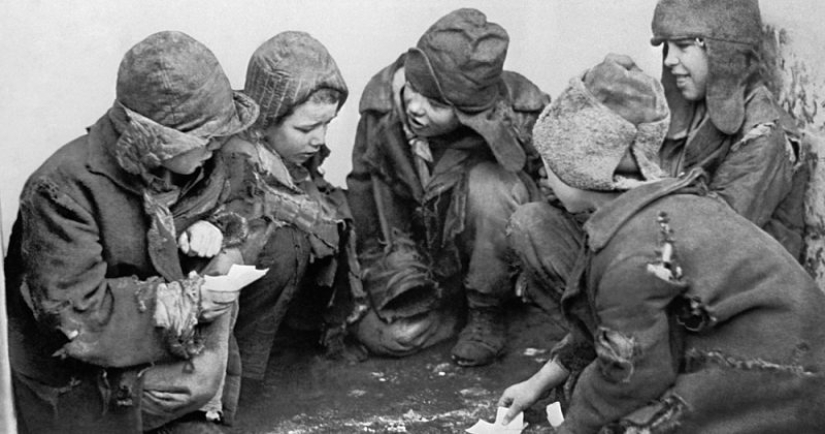
There is a hypothesis that in ancient times the concept of "childhood" came to an end together with infant age. After that came the particular age in which kids are perceived not as small adults. Probably not, but we can confidently say that in different countries in different periods of childhood were of different length, and treated him also different.
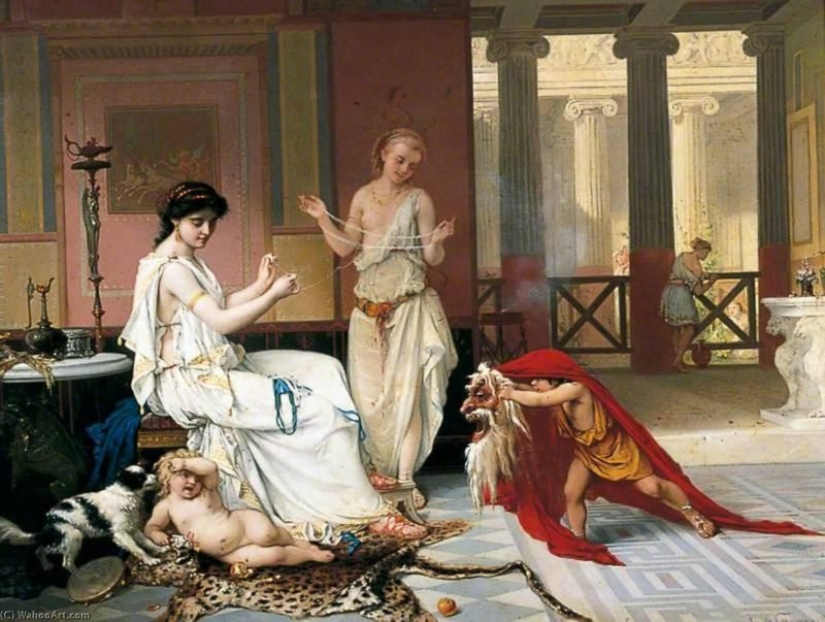
Even the ancient people could not understand that children differ from adults and this applies not only to physical and intellectual capacity. They couldn't reproduce, have had their special interests and most adults had suffered from infectious diseases. Ended this period with puberty and the little man became a full member of society.
The attitude to children in Europe, historians are divided into two main types: the Jewish and Roman. Both implied that the child is property of parents. While the Romans could do with their offspring on their own, and the Jews infanticide was strictly forbidden.
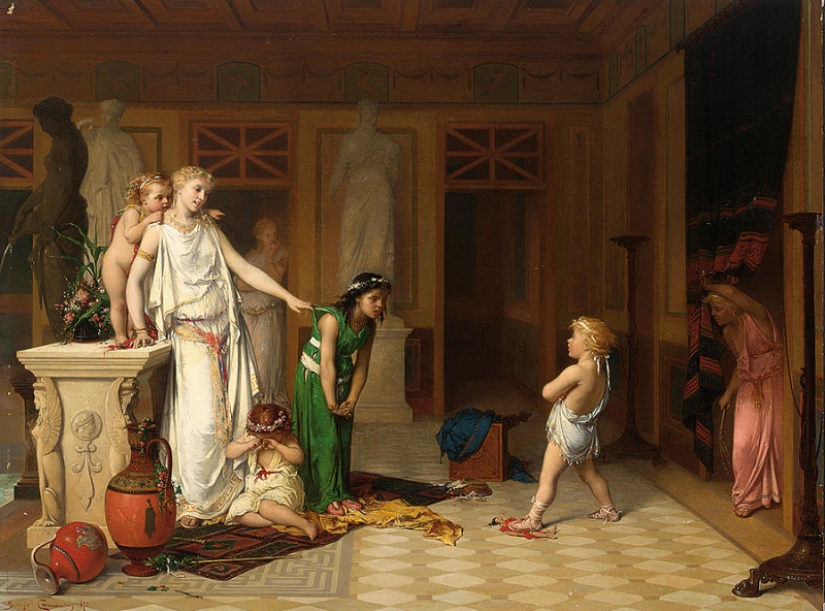
Child-beating in Ancient Rome was common and a crime no one believed. However, with time, the proud, the Romans came around and began to introduce laws protecting the rights of children. Today they look more than strange. For example, father may have been deprived of parental rights if it is more than two times to sell the child into temporary slavery.
Should immediately clarify that all laws concerned only the Roman citizens — the little slave-barbarian could kill middle of the street and it would not have led to any consequences. The child was something like livestock, pet, trinkets, at least from the point of view of the law.
This does not mean that children do not love parents. Loved them, in case of illness was worried and tried to help, but if the kid died — inconsolably grieved. But it was a strange, selfish love and evidence of this was found literally at every step.
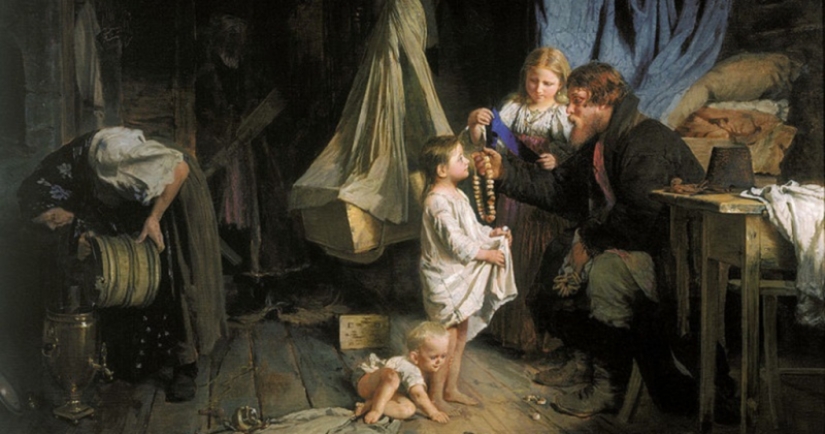
If the house was not enough food, then gave her not a child, and the man. It was justified a violent era — the man was the breadwinner and if he was exhausted or dead, at issue was the survival of the entire family, sometimes quite large. Was also things that are difficult to explain from a rational point of view. If the house was a treat, until recently it was considered normal that the father of the family will eat it himself or take the lion's share.
This applies not only to fathers, often also did the mother. However, in this case, the chances of leniency was more, but this is a feature of female psychology. In any case in the 19th century the child was a second, and even third grade. Children's rights were protected only in case when it was about the rights of the family to which it belongs.
To tell you that before children work hardly worth it — this is known to all. As soon as the kid from a peasant family began to understand what was wanted of him, he began to give a small order, and at the age of 7-10 years, children are already full helping parents in the field, workshop or at the furnace, in the barn with the cattle. It is also the responsibility of older children included caring for younger brothers and sisters.
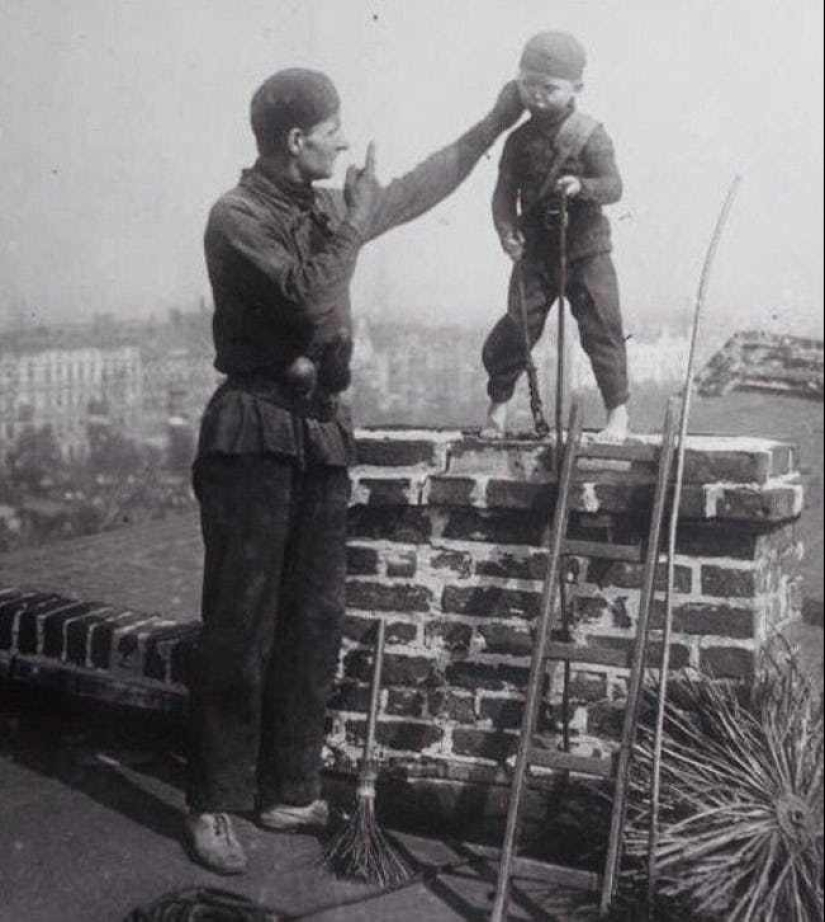
In the noble families all occurred a little differently, but to call the noble offspring childhood carefree also not dare. They were obliged to strictly observe etiquette, to maintain the honor of the family and, most importantly, a lot of hard to learn. The education of aristocrats began to in 3-4 years and 5 years were often able to decently speak 2-3 foreign languages.
Professional child labour is a separate big topic of conversation. Into the progressive Victorian era in the cities of England worked by thousands of chimney-apprentices, who daily risked his life. When cleaning a chimney, when the instrumental methods were not effective, the chimney sweep was tied his young assistant's legs with a rope and lowered his head down in the smoke channel. The death of a child in this case was recognized as an accident and an adult could only be fined if the investigation acknowledges that he failed to take adequate measures to protect the little helper.
Children worked in mines, workshops for dyeing process and tanning leather, hat Atelier with mercury chemicals and various other dangerous and hazardous industries. It should be noted that the salary of a child differ from an adult at times, even if he did put adult normal.
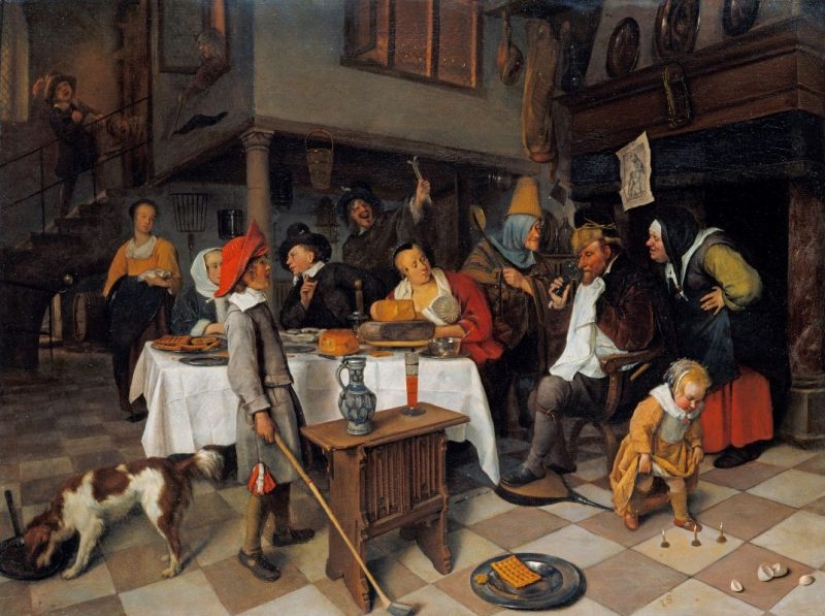
All children love to play, and most intense concerns of life did not prevent them to devote time to entertainment. The field of children's games could be different. Someone's got expensive toys bought by parents, someone was making their father or mother, but someone had to do them yourself.
A special division of interests was not — the boys and girls could play with dolls and objects depicting weapons. Were particular trends depending on the era. In the 19th century it was fashionable to play Indians and pirates, and in the 20th century in war. Events around the world has always influenced young people in the first place.
Adults are not always loyal to children's entertainment, especially among the peasants. A huge number of home Affairs demanded the involvement of all family members and the hanging idle offspring annoyed. In high society it was thought that games are useless, unlike learning texts and poems by heart and solve mathematical problems.
Do not promote games and Church — from her point of view, any game was considered a sloth, and therefore fall into the category of sin. Was particularly odious to the saints children's entertainment, especially associated with the pagan heritage. For example, censured any fun with the clapping of hands.
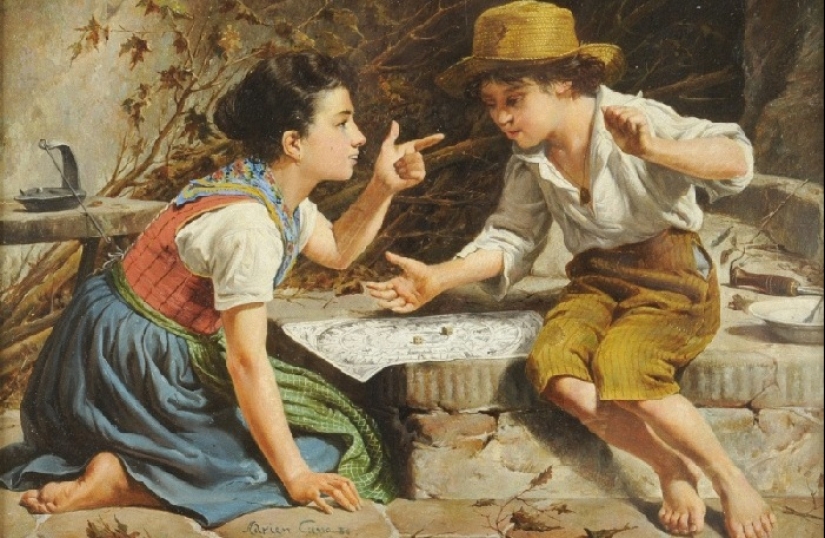
Scientists of our time, examining girly games with clapping of hands and shouting ridiculous chants and found that many of them are directly connected with ancient pagan rites. It's amazing, but in children's games there were shards of pre-Christian rites. Alas, the 21st century nearly destroyed that legacy technology has reduced the interest in such entertainment, as team games are only considered in the plane of the sport.
To summarize, we can say that games have become for children the norm only after came the urban middle class. It is the representatives of this segment of the population could afford the luxury of nothing to confuse children and to overlook the little things that they do. By the way, some games were quite childish and even creepy.
It should also be said that today the traditional type of family relationship arose in the families of bourgeois and gradually came to the nobility, and only then in a lower class. It destroys the stereotype that all progressive appears first among the nobility and then falls below.
Today, there are families in which adopted children allow plenty of excess and forgive the most serious offenses. Parents believe that their child will have time to be "toe the line" and give him the freedom within reasonable limits. But it can be called innovative, as in the good old days things were different.
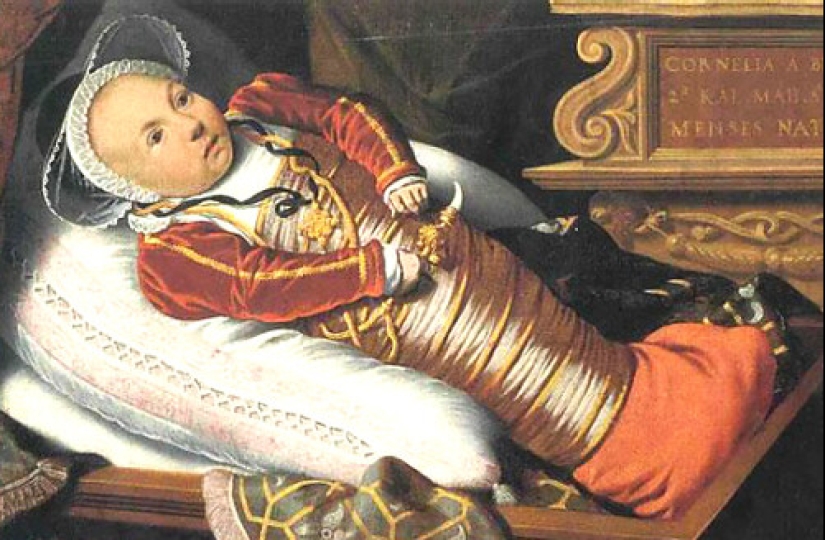
The fact that you can't control and to provide at all times cause human irritation. Children are not like adults in appearance or their actions, so attempts to bring them "up" never stops. Only relatively recently introduced the fashion for naturalness softened this attitude.
The baby was most similar to the adult, his tightly swaddled and in this position the baby was constantly, except when he changed diapers. The children were in the extended position, unable to stretch my limbs and feeling this pain.
Swaddling was not a purely European invention. In many North American Indian tribes of the children also tightly wrapped and tied to the plate, located at the mother behind. They were not allowed to crawl on all fours, as they had become like wild animals.
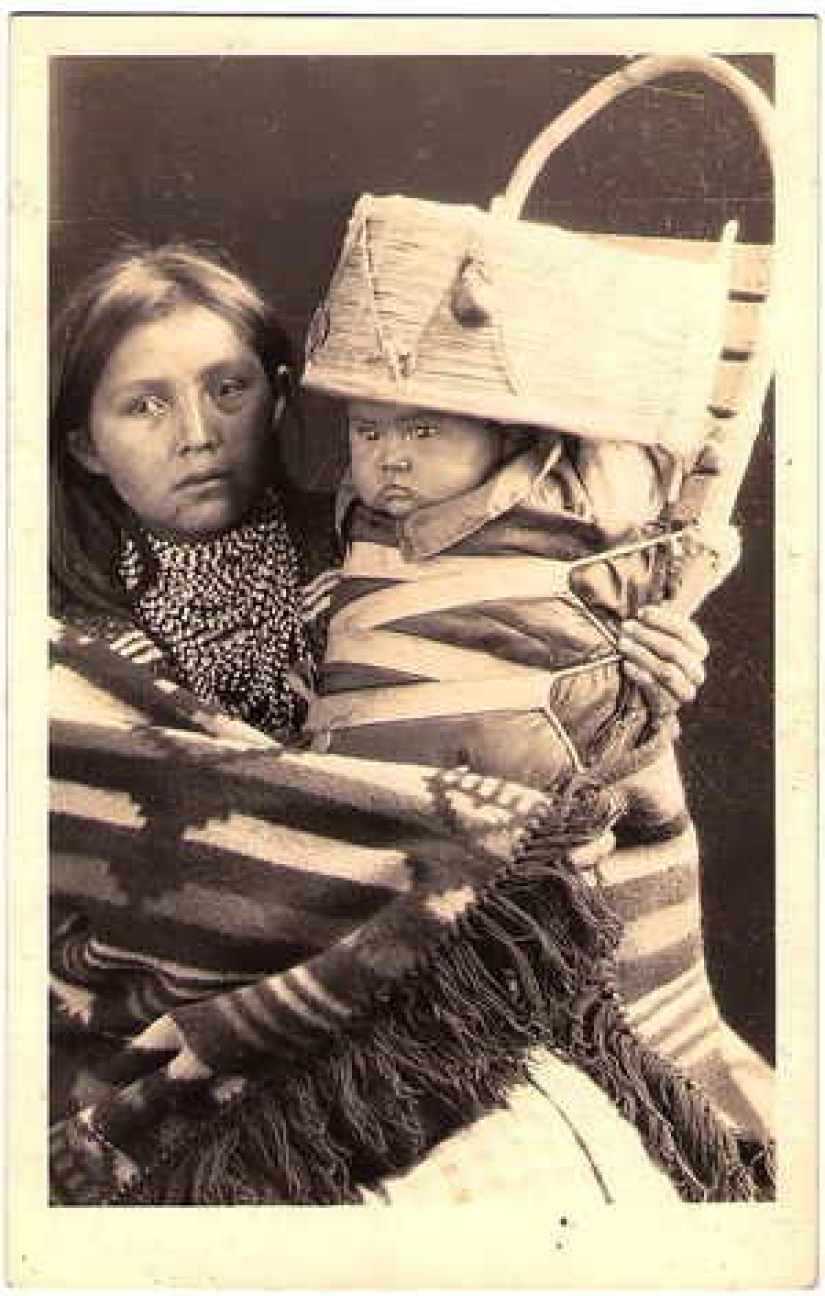
In the Middle ages it was even tougher — was invented children's corset. It was used in noble families and this accessory had several purposes. The first was, of course, giving infant adult body position. Other reasons for the use of a corset was shocked. The rigid structure was supposed to protect the kid from broken ribs.
I think that the child may suffer from accidental drops and corsets is insurance against rare accidents? Not at all. Children are able to hold the head on weight, often for the entertainment of throwing each other, sometimes from window to window across the narrow medieval street!
Particular irritation always causes infant feature to uncontrolled defecation. To streamline this process adults at different times resorted to different tricks, but the most popular has always been a common enema. Defecation organized by hour, to avoid unpleasant "surprises" during the day and especially at night.
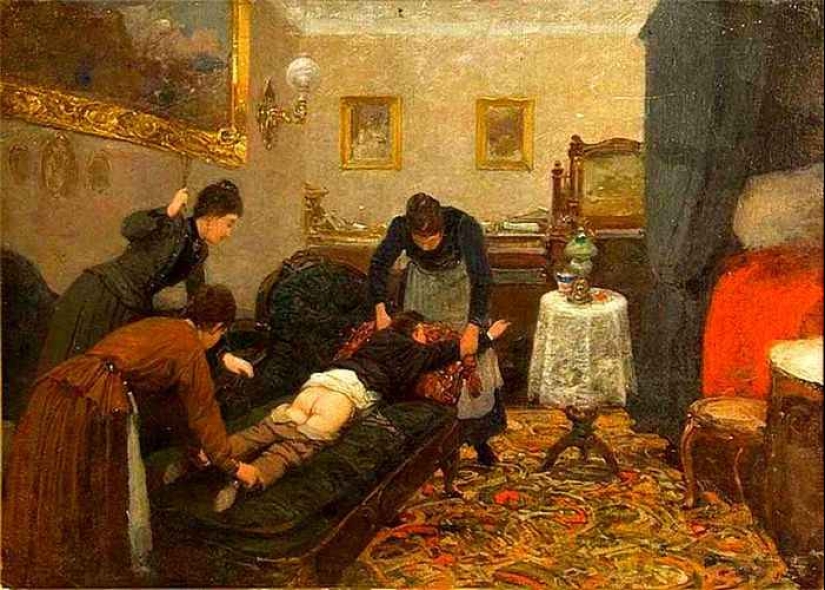
Was organized and educational aspects. At the end of the week the child received a spanking for all his sins. If any were absent that it was unlikely the baby had only a small chance to avoid punishment — very often children s just, "not to forget themselves", that is, with prophylactic purposes.
Many cultures throughout the world, sexual aggression by older children to younger was almost a tradition. Suffered from this the boys, as they rape the older long centuries easily and simply presented as a magical ritual transfer of male power from the older generation to the younger.
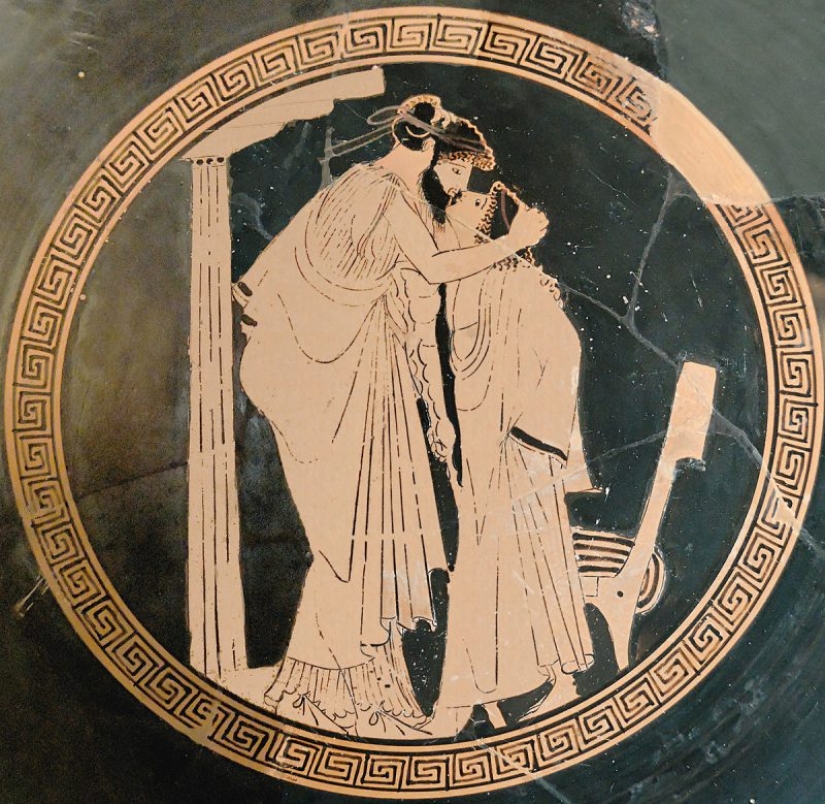
Such unnatural relations was practiced in pre-Christian Europe among the indigenous population of the Americas, the tribes of Africa and Oceania. Girls also were exposed to violence — corruption of the older brothers or cousins were considered fun, and sometimes encouraged by adults who considered such actions as preparation for adult life.
Once in Europe it's Christianity, sexual acts to the child by the father or grandfather was considered a crime, but a large part of the blame inevitably were pinned on the girl. With child slaves in the ancient world or in the East it was possible to do generally anything, and society looked the other way.
In medieval Europe, the corruption of adults was especially common among the nobility and the clergy. If the crime became known, the blame often pinned on the child. In such cases, the victim was acknowledged a little Horny seducer, and the libertine adult is not only not punished, but did not lose respect in the community.
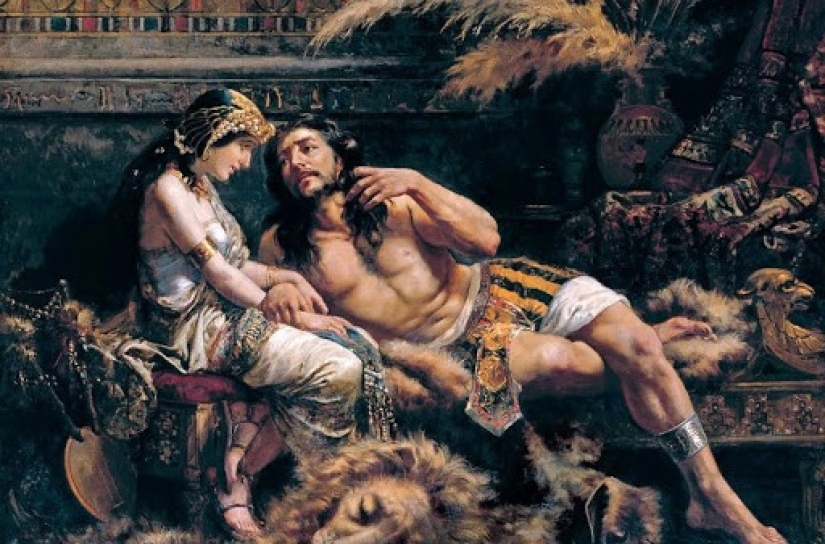
Today it seems strange that a child who is admitted unable to dispose of their property and to make political and marital choices, was deemed responsible for the sexual actions of an adult. Unfortunately, echoes of this phenomenon found so far.
Even in the 21st century in many developed countries in the news you will see that with an unusual wording. Sometimes they write that 11 years girl sex with a boy, although the only correct definition is the corruption of a girl adult.
As we have seen, childhood has never been pleasant and carefree, and even in our time, to consider it as such is possible only conditionally. Humanity moves to protect the child and done a lot. Unfortunately, the Millennium, during which the child was considered almost soulless thing and "subhuman", formed persistent stereotypes and breaking them is not easy.
Keywords: Antique | Adults | Education | Child labour | Childhood | Laws | Protection | Rights | Child
Post News ArticleRecent articles

It's high time to admit that this whole hipster idea has gone too far. The concept has become so popular that even restaurants have ...

There is a perception that people only use 10% of their brain potential. But the heroes of our review, apparently, found a way to ...
Related articles

We used to accuse modern art in unprincipled and addiction to pornography. But whether innocent old classic paintings that are dear ...

Human history knows two trends: the first is craving for sex and the second — the struggle with sex. Why do so — let him think ...

Don, Siberian, Greben, Kuban and other Cossack integral part of the Russian people. They owned land in return for a commitment to ...

New Year's is a time to surprise and delight loved ones not only with gifts but also with a unique presentation of the holiday ...